Is a dishwasher profitable or not?
 Those who have already bought a dishwasher or just want to buy one are interested in the question: is a dishwasher beneficial at home, or is its benefit nothing more than a myth invented by advertisers and manufacturers of household dishwashing equipment? The question is indeed a very serious one, because the answer to it depends on the purchase of a dishwasher or its further use. Let's try to be as objective as possible and draw conclusions based on real tests.
Those who have already bought a dishwasher or just want to buy one are interested in the question: is a dishwasher beneficial at home, or is its benefit nothing more than a myth invented by advertisers and manufacturers of household dishwashing equipment? The question is indeed a very serious one, because the answer to it depends on the purchase of a dishwasher or its further use. Let's try to be as objective as possible and draw conclusions based on real tests.
How much money does a dishwasher save?
There are quite a lot of conventions in this matter. Savings will depend on the model of the dishwasher, the intensity of its use, tariffs for water and electricity, the composition and cost of detergents and salt, etc. However, we decided to go for an experiment and calculated how much money it saves dishwasher Bosch SMV23AX00R per month, serving a family of 3 people.
The house has a water heater, so we calculated in advance how much cold water and electricity the family spends on washing dishes. It turned out that per month the family spends 1.5 cubic meters of cold water per month on washing dishes by hand (the water is terrible, it could be done more economically) and approximately 29 kW of electricity (+-5 kW). Despite the fact that family members wash dishes not with hot water, but with warm water.
- 1 cubic meter of cold water costs a family approximately $0.1, and one kW of electricity costs $0.1.
- $0.3 – water, $1 – electricity.
- Add up the costs and get $2.
But that's not all the costs. To wash dishes by hand, you will need detergent and a sponge. Within a month, the sponge deteriorates completely, so we can include the cost of one sponge as an expense, which is approximately $0.1. Now the detergent. Inexpensive detergent can be purchased for $1.The package contains 0.5 liters of product, which is enough for about 3 months - $0.3. To sum it up: $2. If you do not take into account some errors in the calculations, this is the monthly cost of washing dishes by hand.
Now let’s calculate how much money you need to wash dishes for a month using a Bosch SMV23AX00R dishwasher. Provided that the equipment was turned on strictly once a day in the evening to wash the dishes that had accumulated during the day and worked on the usual program for 2 hours 10 minutes, it spent 63 kW of electricity = $3 in 30 days. Our machine consumes 11.7 liters of water per wash. Multiply by 30 days, we get 351 liters, that is, 0.351 cubic meters. = $0.05. Let's add up the costs for water and electricity = $3.
Of course, these are not all costs. We have not yet calculated the most important expense item, namely the costs of detergents and salt.
Our family used Somat tablets to wash dishes in the dishwasher. They are inexpensive and wash well. A box of 84 capsules was purchased for $3. In one month, exactly 30 capsules were consumed. Through simple calculations, we calculated that 1 capsule costs approximately $0.03 = $1.
This was the cost of detergent. Now let's calculate the cost of salt. We used Elly salt, which costs $2 for 3 kg. In a month, a little less than 1 kg of salt was spent. To make it easier to calculate, let’s round up the costs to 1 kg, which is approximately $1.
Well, we finally come to the most interesting part, adding up all the costs. So, $3 – water and electricity, $1 – detergent, $0.5 – salt. This is exactly how much the Bosch SMV23AX00R dishwasher spent in 1 month of operation. Total: $2 – hand wash and $4 – machine wash.
Now let’s calculate how much money you need to wash dishes for a month using a Bosch SMV23AX00R dishwasher. Our machine consumes 11.7 liters of water per wash. Let's add up the cost of water and electricity to $3.
Of course, these are not all costs. We have not yet calculated the most important expense item, namely the costs of detergents and salt.
Our family used Somat tablets to wash dishes in the dishwasher. They are inexpensive and wash well. A box of 84 capsules was purchased for $3. In one month, exactly 30 capsules were consumed. Through simple calculations, we calculated that 1 capsule costs approximately $0.5.
This was the cost of detergent. Now let's calculate the cost of salt. We used Elly salt, which costs $2 for 3 kg. In a month, a little less than 1 kg of salt was spent.
wow: $1 – hand wash and $4 – machine wash.
You can't wash without wet your hands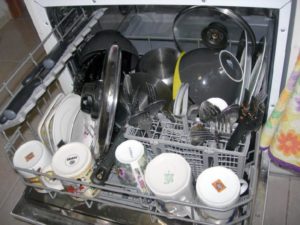
So which is better: dishwasher or hand washing dishes? It is difficult to draw conclusions because not everything is measured by money. Many families are even willing to overpay a little for a certain amount of comfort. It’s so great to load dirty dishes into baskets, and the machine will do everything for you, you don’t even need to get your hands wet. The advertising image of a happy housewife just pops up before your eyes, but let’s return to reality.
Not all dishes fit perfectly and clean perfectly in the dishwasher. Large baking sheets, trays, and vats either don’t fit into the machine at all, or they fit but are difficult to clean. You have to either wash them from scratch or wash them in the dishwasher, which is doubly unpleasant.
Go ahead. Not all items are dishwasher safe. For example, let’s say you used a meat grinder. Its aluminum parts absolutely cannot be washed in a machine, otherwise they will turn black and will have to be thrown away, so I wash them by hand.
Wooden cutting boards, wooden spoons and spatulas will also deteriorate in the dishwasher; they are also washed exclusively by hand. In fact, there are many examples. This means that before you turn on the machine, you must sort the dirty dishes. Some things need to be washed by hand and some in the car. In general, you will have to wet your hands one way or another, whether you have a dishwasher or not. Yes, and you will have to spend time:
- sort the dishes;
- put dishes in baskets;
- wash by hand those items that cannot be washed in a machine;
- Wash the sink and faucet afterwards.
The dishwasher itself also needs to be washed from time to time to remove dirt, otherwise it will stop working normally, and this is most often done manually.
Myths about the benefits of a dishwasher
After such calculations and reasoning, you begin to seriously think about whether to continue using the dishwasher or washing dishes by hand. Those who don’t yet have a dishwasher will probably think twice about it after reading this article. We would not like to be anti-dishwashers, but listening to the arguments of dishwasher sellers, we cannot help but “turn on a sober view.” Some of the advantages of dishwashing equipment they voice look very implausible.
- The dishwasher takes up little space in the kitchen. This is usually said about narrow dishwashers with a body width of 45 cm. Indeed, the phrase “not enough space” has a pronounced evaluative nature, but if you look at the small-sized kitchen of the average Russian, you want to cry. It’s not like a dishwasher, it’s hard to fit a microwave in there. Objects stand on top of each other in such a way that it is impossible to turn around.
- A dishwasher helps save the family budget. We devoted the first paragraph of our article to this. The statement, frankly speaking, is unfounded.
- A dishwasher helps you stop washing dirty dishes by hand. We gave several arguments that helped us understand that a complete rejection of manual dishwashing is only possible if you hire a housekeeper. A dishwasher will make the task easier, but you won’t be able to completely abandon manual washing.
So, perhaps some of our calculations and arguments may seem far-fetched to you, but on the other hand, we did not claim 100% accuracy. Our calculations were initially positioned as approximate, but even they make it clear that operating a dishwasher is incomparably more expensive than if you washed the dishes by hand. Make your own calculations and make sure we are right. Good luck!
Interesting:
10 reader comments
Add a comment Cancel reply
Categories
Washing machine repair
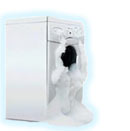

For buyers
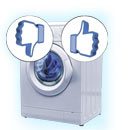
For users

Dishwasher




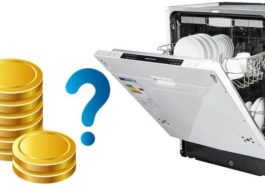
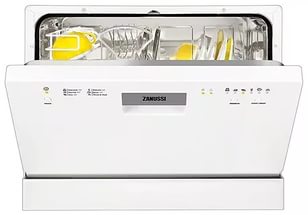
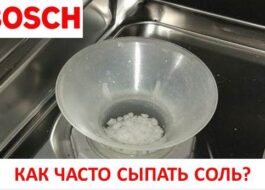
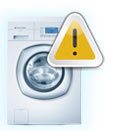
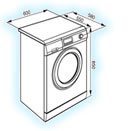




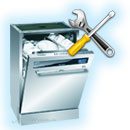
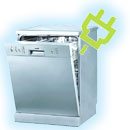


Thanks for the detailed answer!
Thank you, now I know for sure that I will not buy it.
1.5 cubic meters of water for washing dishes by hand per month? Author of this calculation, have you washed the dishes at all?
How many cubes?
You forgot to take into account the cost of the PMM itself. If you're lucky, then 25,000 for 10 years is another +200 rubles. per month. If not, 2 times more. And also repairs :)
Tough, you are accountants. Have you even taken into account the time you spend on washing dishes? It pays off quickly. Better rest during this time.
I was also surprised by the fact - 1.5 cubic meters per month. They don't eat at home? Yes, to wash greasy dishes you need at least a liquid for greasy dishes and rinse this liquid off well. And this is not a single liter of water. For those who are frugal, here is some advice: buy plastic bags, put them on the dishes and throw away the bag. It’s really more complicated with soup - but don’t eat it, you can save water and electricity.
Thank you for the article! I'll give it to my wife to read, so she can leave me alone with this purchase.
The generation of young people after the “zero” are absolutely zombied people, living on advertising and thinking exclusively in “trends”. They have absolutely no brains of their own! It's sad, but it's a fact. And all over the world
They didn’t calculate it correctly - in addition to water consumption, you also need to calculate drainage.